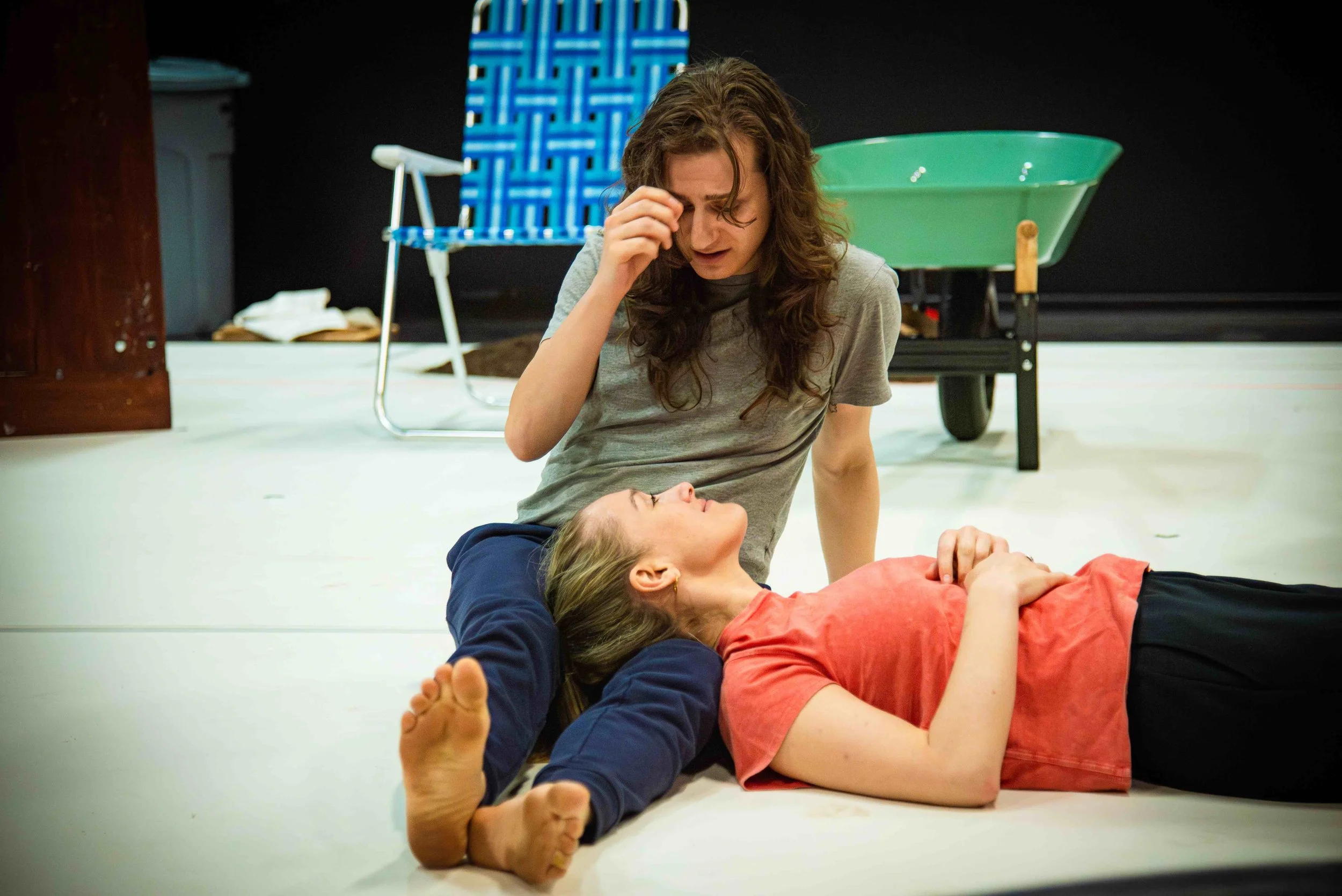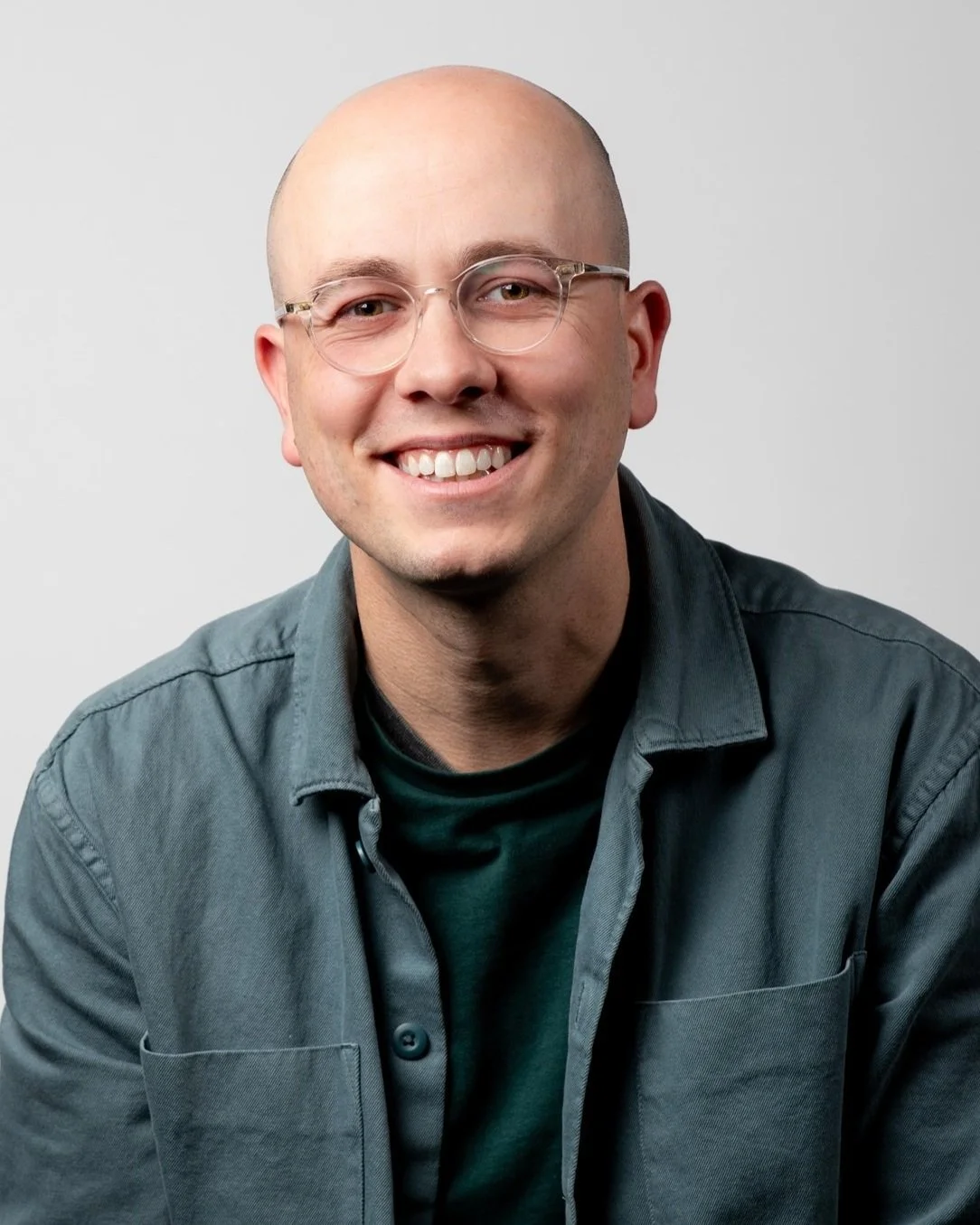Ce que je sais de vrai unpacks the complex inner workings of a dysfunctional family
Director Cory Haas reflects on how six characters emphasize the importance of proper communication and unapologetic individuality
Ce que je sais de vrai. Photo by Chelsey Stuyt
Théâtre la Seizième presents Ce que je sais de vrai at Studio 16 from April 30 to May 10
SOME OF POP CULTURE’S greatest productions revolve around the inner workings of suburban families. The most well-known of these stories range greatly in genre, from the feel-good comedy of eight-year-old Kevin’s antics in Home Alone to Parasite’s thrilling depiction of a low-income Seoul household infiltrating a wealthy one.
Somewhere in between sits the dysfunctional Price family. In Andrew Bovell’s 2018 play Things I Know to Be True, empty-nesters Bob and Fran struggle to connect with their four children, who are all in different stages of life and facing their own challenges out in the world. But as secrets compound and ultimately come to a head, it becomes apparent that the family members’ inability to communicate with one another is tearing them apart.
Théâtre la Seizième’s artistic and managing director Cory Haas has translated the production into French, and will direct the upcoming run of Ce que je sais de vrai at Studio 16. Bob and Fran’s parenting style, he tells Stir, differs from child to child.
“I think they’re very loving yet stern parents,” Haas says. “What’s interesting in the title, Things I Know to Be True, is that they grew up with one way of parenting and with one way of being, and some of the children are challenging that a little bit. It’s hard for them to come up against change and evolution. So their parenting skills are put a little to the test from what they usually know.”
Though Things I Know To Be True takes place in Australia, Bovell’s script states that it’s possible to set the play in the suburbs of any major city in the Western world. Ce que je sais de vrai will transpire right here on the West Coast—more specifically, inside a Langley home. To give the production even more of a local angle, Haas has made Fran francophone and Bob anglophone. Because the family is bilingual, the show is in French and English, with surtitles accompanying the performances from April 30 to May 10 (except May 2).
Cory Haas. Photo by Gaetan Nerincx
The play unfolds over the course of a year, allowing audiences to see how these six characters’ lives evolve with time. In a reflection of generational influence—Bob and Fran’s relationship is, in a word, rocky—one of the sisters is going through marital troubles with her own husband.
“All of the kids are trying to break free from the confines not only of family, but what they know to be true,” Haas explains. “Sometimes nostalgia keeps us stuck in a certain place because we’re afraid of what it might mean to go past that, or to try to break free from something we know so well. And I think all of the kids are at a point where they’re realizing that they need to surpass themselves in order to break free. That might mean saying goodbye to some of the things that they knew from their childhood that they knew were good things, but didn’t allow them to fully be themselves.”
In many ways, Haas says, the play proves relatable for just about anyone who can connect to a sense of family, whether that be blood relatives or a chosen group of friends. The Price children eventually realize the importance of being unapologetically themselves in any setting or relationship.
“A family is a mini microcosm of the larger society,” Haas says. “So I think even if we don’t have maybe the exact same relations as the Price family has in the show, that we can hold onto something about growing or going through an evolution. I think people will connect to those ideas.”
The director adds that Ce que je sais de vrai also asks whether it’s possible to love too deeply within family dynamics, to the point of self-sacrifice.
“Family evolves,” Haas says. “Family changes. It remains family, but sometimes if you don’t communicate, you put more importance on that family and how you’re seen rather than who you truly are….And I think a family is only as strong as the people inside of it. If people are fully themselves, fully actualized, then that’s when the family can blossom.” ![]()


























